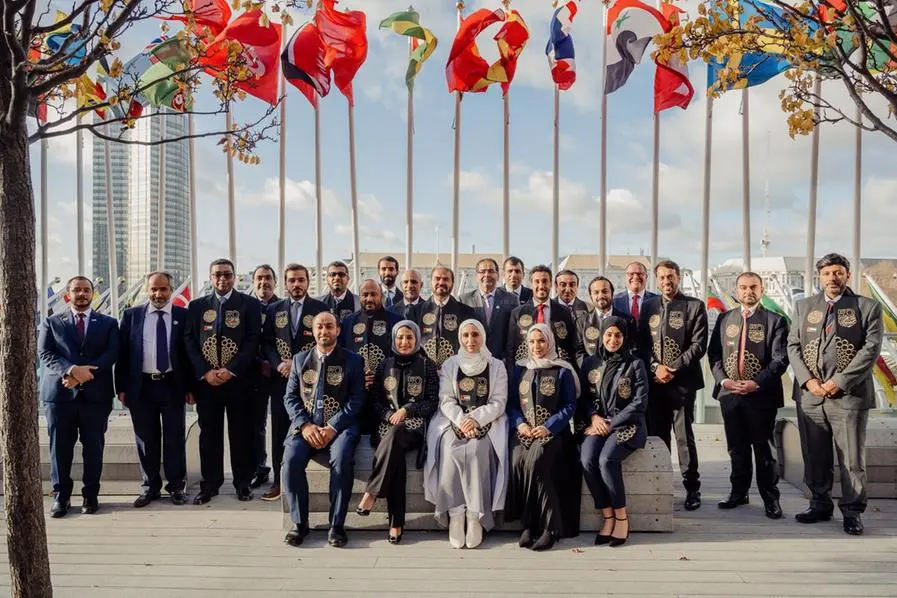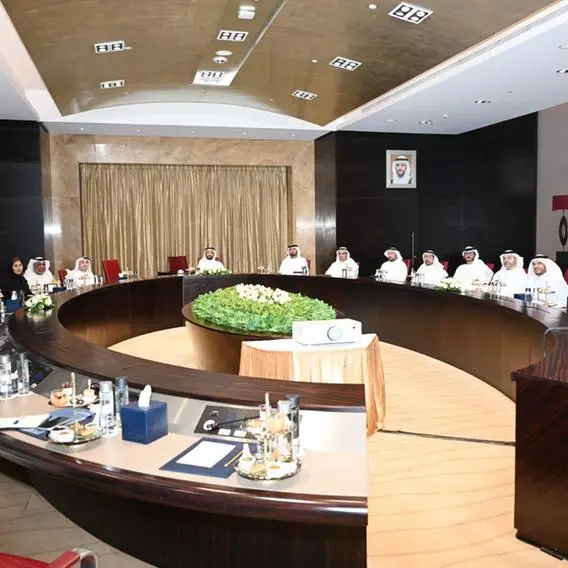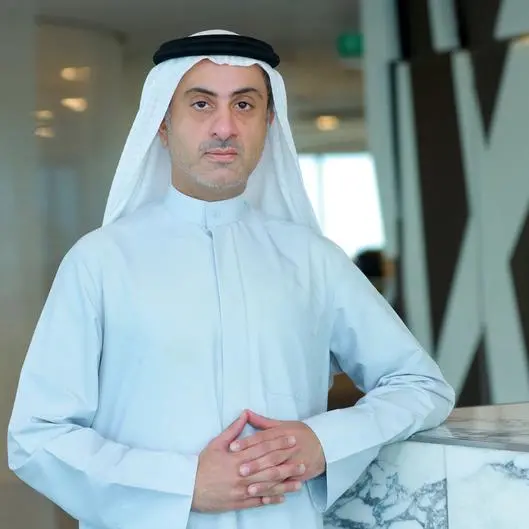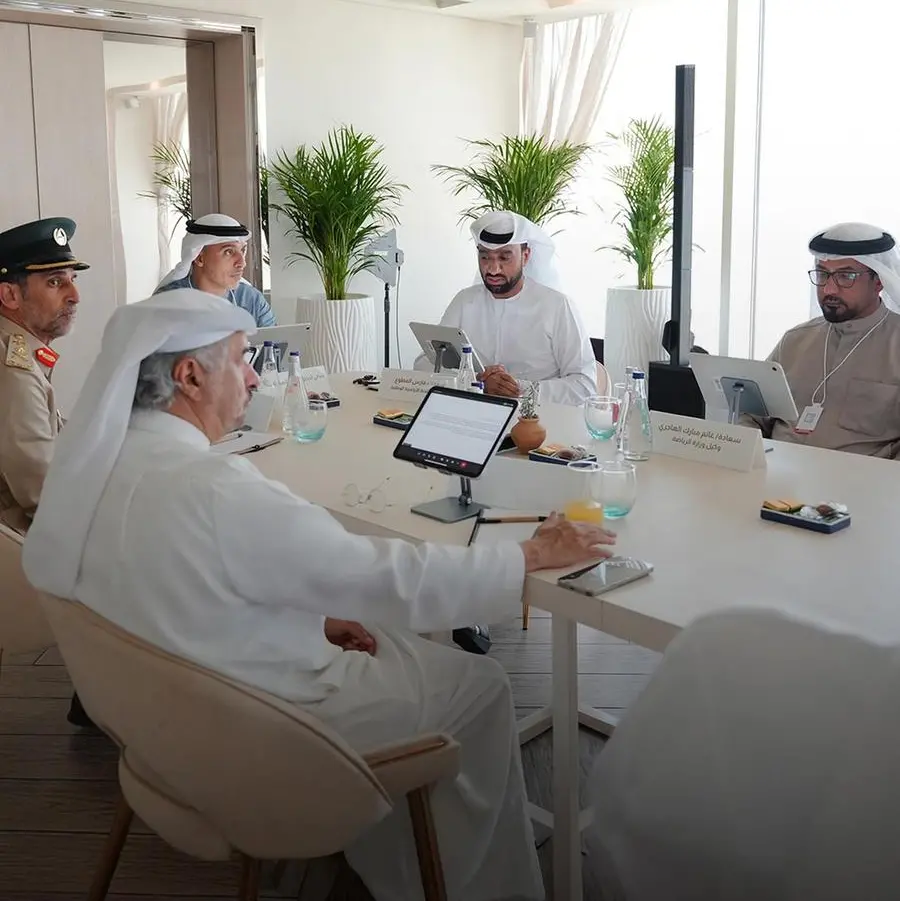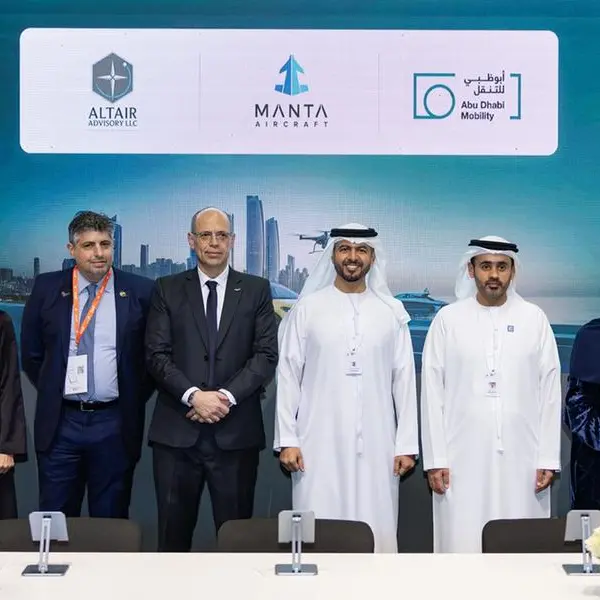PHOTO
- Hassan Al-Mansoori: The UAE is committed to fulfilling its responsibility in establishing a sustainable platform for sharing expertise among maritime nations and organisations
- Mohammed Al Kaabi: The UAE contributes to the development of strategies, policies, agreements, and standards governing the maritime sector
- Hessa Al Malek: The UAE is one of the leading countries in supporting and fostering a comprehensive maritime investment environment
Dubai, UAE: The United Arab Emirates (UAE) has further solidified its prominent position among the world's premier maritime hubs, emerging as a key influencer in the global development of the maritime industry. The UAE's practices, decisions, and legislative actions have been instrumental in the growth of the sector and the enhancement of international maritime safety standards, as well as the preservation of the global marine environment.
In 2017, the UAE was first elected to the International Maritime Organization (IMO) Council, category B, was re-elected in 2019, and received the highest number of votes in the 2021 elections. The UAE is looking forward to be re-elected for the fourth consecutive time in the elections that will take place from 27 November to 6 December 2023 in London. The UAE aims to continue its effective role in strengthening maritime legislation and regulations to serve the shipping sector and international trade.
Strengthening Global Leadership in Competitive Indicators
Commenting on the UAE's role within the International Maritime Organization, H.E Suhail Mohamed Al Mazrouei, Minister of Energy and Infrastructure, said, "The UAE has become one of the world's foremost maritime nations. In 2022, the maritime sector's contribution to the UAE's GDP surged to AED 129 billion, an impressive 18% increase compared to 2021. The country has achieved numerous accolades in global competitiveness indicators within the maritime sector. It was ranked 3rd globally in transport services trade and the Bunker Supply Index and claimed the 5th position as a major competitive maritime hub worldwide. The UAE's ports are among the top 10 globally in terms of container handling volume. They handled over 19 million TEUs, with more than 25,000 port calls recorded in the UAE. Our concerted efforts in sea, land, railway, and air transport are harmonised towards achieving sustainability and reducing emissions. Globally, the UAE ranks seventh in the Logistics Performance Index."
Al Mazrouei added, "Through the UAE's membership in the IMO Council, we are committed to collaborating with other member states in advancing the global maritime sector and the shipping industry. Our collective mission is to promote the safety, security, and efficiency of maritime transport in clean oceans, in line with the IMO's goals. The UAE has been actively engaged in introducing significant amendments to various decisions that contribute to the development and enhancement of the work system, ensuring alignment with global changes and modern technologies. These amendments are designed to alleviate the burden on ship owners and maritime companies, while also contributing to the safety, security, and protection of the marine environment worldwide."
H.E Eng.Hassan Mohamed Juma Al-Mansoori, Undersecretary for the Infrastructure and Transport Sector at the Ministry of Energy and Infrastructure, said, "The UAE's seaborne trade and transshipment efforts cater to most of countries such as China, India, the Gulf States, Central Asia, and extending to Eastern Europe. Our country is committed to fulfilling its responsibility in establishing a sustainable platform for sharing expertise among maritime nations and organisations, thereby promoting best practices and enriching technical and legal discussions within the IMO. We will continue to submit proposals aimed at enhancing regulations for safety, security, and the preservation of the marine environment."
Al-Mansoori emphasised that the UAE's dedication to the highest international standards, in its capacity as a major flag State, port State, and coastal State, enables it to address broader maritime issues on a global scale, providing support to the international maritime community.
Mohammed Khamis Al Kaabi, UAE Permanent Representative at the IMO, said, "The UAE is among the first countries in the region to declare a national climate neutrality strategy, with the aim of reducing emissions by 40% by 2030 and achieving net-zero carbon emissions by 2050. This will be achieved through a sustainable, science-based approach that involves government organisations, national ship operators, sea ports, shipyards, and research centres, in line with the Paris Agreement and the UAE's 50-Year Charter. The Port of Fujairah is a significant provider of low-sulphur bunker fuel and offers facilities for liquefied natural gas bunkering in accordance with the MARPOL Convention, to combat air pollution from ships and align with the IMO's objectives. Additionally, the UAE has established the Emirates Centre for Reducing Carbon Emissions, the first of its kind in the region and fourth globally. The UAE is a key proponent of developing clean alternatives and green hydrogen fuel. It has emerged as a global hub for conferences that bring together experts in clean energy from around the world, in pursuit of innovative solutions and advanced technologies to achieve the IMO's goals of decarbonising the maritime shipping sector."
Al Kaabi added, "Through its membership in the IMO, the UAE contributes to the development of strategies, policies, agreements, and standards governing the maritime sector. The UAE actively participates in all of the IMO's activities, including the Council, main technical committees, sub-committees, and related working groups. We have also hosted several regional workshops and capacity-building activities to assist member states in implementing international maritime regulations and standards."
Fostering a Comprehensive Investment Environment
H.E Eng.Hessa Al Malek, Advisor to the Minister for Maritime Transport Affairs at the UAE Ministry of Energy and Infrastructure, remarked, "The UAE's role extends beyond the development of its internal maritime sector. It is one of the most significant contributors to the international maritime shipping sector through its maritime investments and active involvement within the IMO. The UAE has also supported the maritime sector, global trade, and supply chains through various projects, including the Blue Pass Project and the World Logistics Passport. The UAE's national maritime investments span across 78 countries worldwide. These investments by leading UAE companies contribute to the development of ports and marine facilities in the countries where they operate, fostering trade connections, and advancing automation and digitisation within the maritime shipping sector and supply chain operations. These maritime projects are instrumental in establishing an integrated maritime business community, where everyone can serve as a service provider, fostering an environment where both orders and top-notch facilities are readily available. This will undoubtedly reshape the investment landscape in the UAE's maritime sector and the wider region, offering attractive incentives for investors."
Al Malek added, "Hence, the UAE is seeking to renew its membership in the IMO Council as it serves as a comprehensive model of a flag State, a port State, and a coastal State, and is one of the world's largest energy producers. The UAE remains committed to upholding its role, dedicating its capabilities and unique resources to serve the maritime sector and support the objectives of the IMO."
